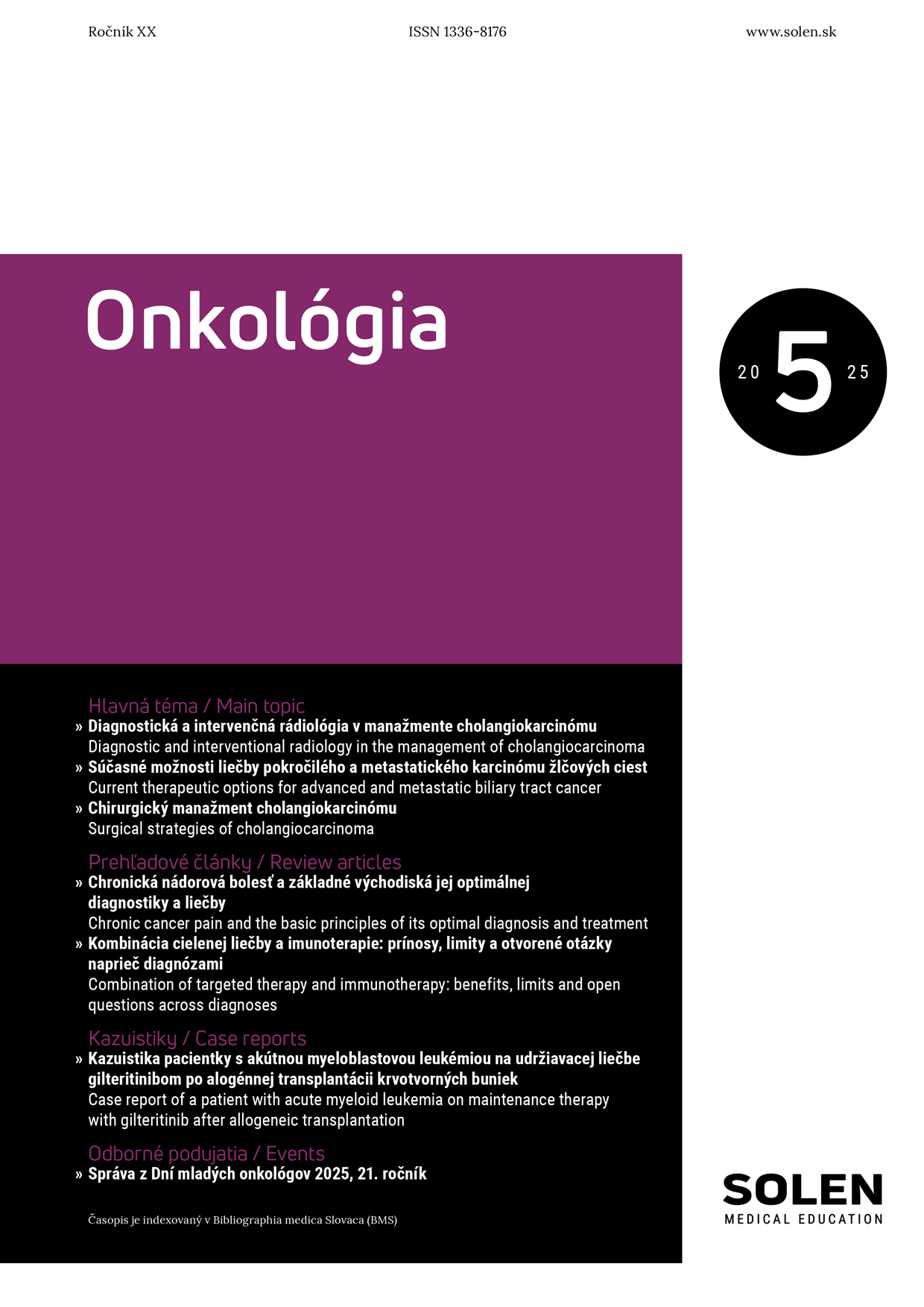Slovenská chirurgia 1-2e/2024
Monitoring the value of adipokines in acute pancreatitis and the development of persistent organ failure
Background: Acute pancreatitis AP is a multifarious condition with several types of severity. Most of the patients develop a mild form of acute pancreatitis but 20 % of the patients develop severe AP that requires intensive care. Nowadays mortality rate in the early phase of AP associated with the systemic inflammatory response syndrome decreased significantly, but mortality in the late phase remains high. The early prediction of persistent organ failure POF in the disease course is important to avoid the development of systemic complications that can lead to death. Adipokines are peptides secreted from the secretory cells of adipose tissue. The importance of adipokines is highlighted by the fact that adipose tissue is the largest organ in the body. The total amount of adipokines produced by every adipocyte in the body affects whole-body functions. Adipokines play a significant role in the self-defense system against metabolic overload and probably also in the immune system. The destruction of the peripancreatic fat tissue is typical during AP, which results in the massive release of adipokines. The level of some adipokines may provide a specific prognostic marker for the severity of AP from the first hours of the patient’s admission. In this study, we aim to examine the role of the value of adipokines, adiponectin, adipsin, leptin, and resistin in the prediction of POF. Material and methods: We studied 43 acute pancreatitis patients who were admitted to our Intensive Care Unit in the Department of Surgery in a single-center study. We examine the level of adipokines in serum within 24 hours of admission. The primary endpoint is persistent organ failure in relationship with the different adipokines levels in serum. Results: A total of 43 acute pancreatitis patients were included. Adiponectin failed to prove that is a suitable factor (AUC 0.59) for predicting persistent organ failure (p=0.24). Adipsin has an AUC value of 0.59 and is not suitable for predicting persistent organ failure (p=0.25). Leptin has an AUC value of 0.63 and is neither favorable for predicting persistent organ failure (p=0.089). Resistin has an AUC value of 0.76 and is the best factor for predicting persistent organ failure in patients with acute pancreatitis (p=0.0005). Conclusion: A high level of resistin in serum within 24 hours of admission in patients with AP is associated with POF. Adiponectin, adipsin, and leptin are not favorable in predicting POF in AP. In conclusion, we consider resistin as an approved marker for the early prediction of POF in patients with AP.
Keywords: acute pancreatitis, adipokines, resistin, persistent organ failure

















